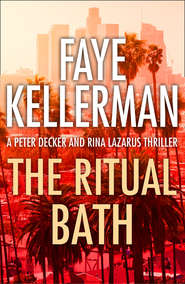По всем вопросам обращайтесь на: info@litportal.ru
(©) 2003-2025.
✖
The Quality of Mercy
Автор
Год написания книги
2018
Настройки чтения
Размер шрифта
Высота строк
Поля
I am going.
I am gone …
Chapter 2 (#u030dea56-f839-5cb7-82fc-d99598947c89)
As the last bits of dirt were shoveled over the grave, William Shakespeare arose and dusted clots of mud and loose earth from his stockings. He looked down at the fresh soil, still stunned by the sudden loss of his mentor, his best friend, Henry Whitman. What villain had done such a foul deed, slaughtered a man on the open road? Shakespeare shuddered as he pictured Whitman dying in that muddy sheep’s cot, his bones cold and stiff from the chilled northern air. The body had been found by a shepherdess, the rapier still embedded in Harry’s back. It had pierced his heart.
Dear God have mercy upon his soul and rest be to his ashes.
Harry’s demise. A surprise attack from a hidden enemy or a madman? The culminating act of a heated quarrel? Always clever—even when sorely drunk—Harry had been an expert improviser, had talked his way out of many tense situations.
A good player must be creative, Harry had told him once. If the book is less than perfect, it’s up to the man on stage to make amends.
Poor Harry. Performing his final scene without an audience. The ultimate insult for an actor. In life, periods of solitude were blessings. Dying alone was a bitter curse.
Rubbing his gloved hands together and tightening his cloak, Shakespeare stared off into the gray landscape. The cemetery was four miles from Bishopsgate, an hour’s walk from London—a long walk when the heart was heavy with sadness. He turned to his right and spotted an incoming funeral train about two hundred yards to the north—a long line of mourners holding banners, torches, and scutcheons. Squires, bearing the family’s coat-of-arms, were followed by blue-gowned servants. Evidence of a man of much means: the deceased had been a gentleman. The casket, draped in black, plodded through the fog as if it had been cast into choppy waters. The funeral party soon came into sharper view. Beyond the staff there were very few mourners. Very few had shown up at Whitman’s funeral as well. A day for small funerals.
The incoming party passed to the right of Harry’s grave, steadily crunching wet grass underneath leather soles. Shakespeare returned his eyes to the grave, almost expecting Whitman to pop his head up and claim his entire demise was jest. When that didn’t happen, he began to walk away.
He hadn’t gone more than ten feet when he felt the presence of eyes upon him—an eerie, intangible touch that crept down his spine and grabbed his legs. He spun to his left, in the direction of the gentleman’s funeral, and saw a motionless, veiled woman appearing to stare at him. Transfixed by her image—a black icon enveloped by shimmering air—he stared back. Delicately, she lifted her veil and regarded him further. She was young, Shakespeare noticed immediately, and beautiful. Her eyes were steely gray, yet burned like coals afire. Her complexion was flawless—milky white with a hint of blush on high arches of cheekbone. Her lips were full and slightly parted, emitting small wisps of warm breath. Her brow and most of her hair were shadowed by hat and veil, but several loose tresses streamed alongside her cheeks and gleamed as black and silky as the fur of a witch’s cat. Statuesque but hazy, as if chiseled out of the clouds that surrounded her, she seemed but a dream.
“Rebecca,” a distant voice said.
The woman didn’t respond.
The voice suddenly took the shape of a man. An elderly gentleman with a sizable belly and a comely red beard, dressed in a knee-length physician’s gown. The cloths of his vestments were not wool or linen, but silk and velvet, the leather of his boots polished to a high shine.
“Rebecca,” he repeated. “Grandmama needs your help.”
Immediately, the woman lowered her veil and caught up with the rest of her party.
Shakespeare felt a tap on the shoulder and jumped. It was only Cuthbert. His eyelids drooped with fatigue, his hazel eyes were red and watery. Like his famous brother, Richard Burbage, Cuthbert was well developed, with thick lips, high cheekbones, and a bulbous nose. The main difference between the two was their voices—Richard’s was deep and melodious, Cuthbert’s thin and tinny. He wasn’t much older than Shakespeare, yet he always walked with a stoop reserved for men twice his age. He placed his hand gently on Shakespeare’s shoulder.
“Your roving eye shows no respect for the solemnity of the occasion,” Cuthbert said kindly.
“Reproach me not,” said Shakespeare. “It was she who engaged me.”
“Who was she?” asked Cuthbert.
“I know not.”
“Save that she is beautiful.”
Shakespeare smiled. “My eye isn’t alone in its wanderings.”
“I admit it to be the truth,” Cuthbert said. “She was a lovely spirit amid all this death.” He paused, then said, “Harry’s death is a great loss for all of us. But I know what Whitman meant to you, Willy. I’m sorry.”
Shakespeare said, “Whitman was a drunk, a braggart, and a carouser. He constantly floundered in a sea of mischief, coming periously close to drowning until someone—usually me—had the decency to rescue him. This time I wasn’t there. Whitman was a millstone about my neck.”
“You don’t mean that,” Cuthbert said.
“Don’t I?”
“You’re angry with him.”
“How can you be angry at a corpse?”
But he was angry. Enraged! And guilty! If only he had been there. In the early days it had been the other way around—Harry the nursemaid, he the baby. Shakespeare had been nineteen at the time, void of any marketable craft. A convicted poacher, he’d been expelled from his native shire of Warwick because he hadn’t been able to pay the stiff fine and had been too full of pride to ask his in-laws for help. He packed a bag and bid good-bye to Anne and the children, swearing to send them all his money just as soon as he was hired by a troupe. But after living on the streets for six months, his only income pennies for lyrics he’d written for troubador songs, Shakespeare had become despondent. No one would hire him as a player, no one was interested in reading his playbooks.
It had been desperation that made him seek out Whitman. The famous actor, though known to be moody and drink in excess, had sudden bouts of unexplained generosity. After one of Whitman’s productions, Shakespeare approached him, fully expecting to be rebuffed. Though there was no room in the fellowship for another itinerate player, Whitman agreed to read Shakespeare’s play.
And read it Harry did, grunting, muttering to himself as he sorted through the uneven scraps of paper on which the lines were written. Shakespeare couldn’t afford anything as luxurious as unused paper. When Harry had finished, he calmly handed Shakespeare back his play and asked what he knew about horses. That was it. Not a single comment on his work, just what did he know about horses.
Shakespeare told Harry that he knew much about grooming—a bald lie—and was hired on the spot. His first real work in London—tending the horses of the gentleman playgoers. He’d been so grateful to Harry for the opportunity.
A few days later Shakespeare burned the book. It remained forgotten until six months later. Harry had been voicing one of his many soliloquies on stage when he started to improvise using lines from Shakespeare’s ill-fated play. The rogue had committed the book to memory as he read it! Afterward, in a tavern, of course, Harry begrudgingly gave Shakespeare a word or two of credit for the well-received lines he’d orated.
Shakespeare looked back at Harry’s grave. Only Whitman’s widow and her parish priest remained, the other members of the fellowship having already begun the walk back to London. Cuthbert followed Shakespeare’s eyes and said,
“Poor Margaret. What will she do? We’ll have to help.”
“Such were my intentions,” Shakespeare said.
“What have you in savings?”
“Four crowns—two are in my doublet.”
“Good luck at the cockfights over the year?”
“Not so,” Shakespeare replied. “I’ve simply been saving my coins. Anne should lack nothing.”
“What a liar you be,” said Cuthbert, grinning. He quickly added: “A statement made in jest, dear cousin.”
“I see you value your ballocks.” Shakespeare laughed. “In truth, perhaps a bet or two did turn up sweet. Now, how does a gentleman offer the widow money without offending her honor? Margaret’s a woman sated in pride.”
“Yes, a problem.” Cuthbert broke into a series of spasmodic coughs. “Then this is what you do. You must lie—in good faith, of course.”
“How so?”
“Tell her the money was owed to her husband. He had lent you the pounds when your debts mounted, and had never told her lest he sully your image in her gentle mind. If it pleases her, she may take her just due.”
“She won’t take my money.”
“You approach her with a humbleness of tone, yet insistence in your voice. The hooded eyelid, a grave downturn of the lip. Marry, Will, you’re a player! Use your skills and convince the poor widow.”
“Aye, a player I am,” Shakespeare said. “But she was the superior player’s wife.”
Cuthbert coughed and nodded. “True. But now she’s stricken with grief. Her finely honed senses have been dulled.” He nudged Shakespeare in the ribs. “The priest is leaving her alone. You have opportunity. Make the most of it.”











